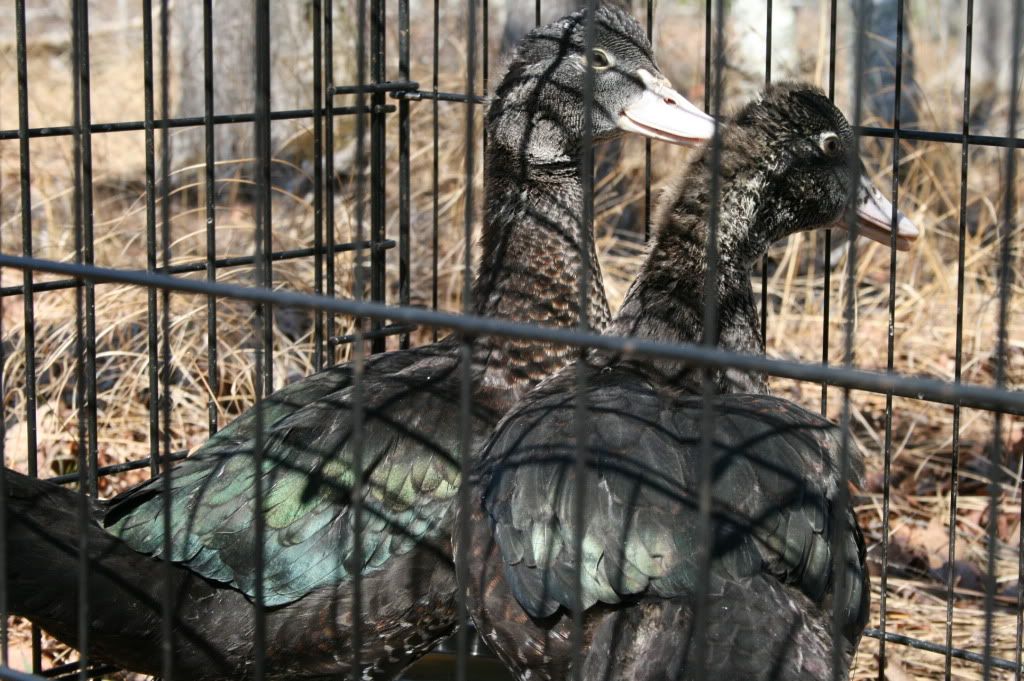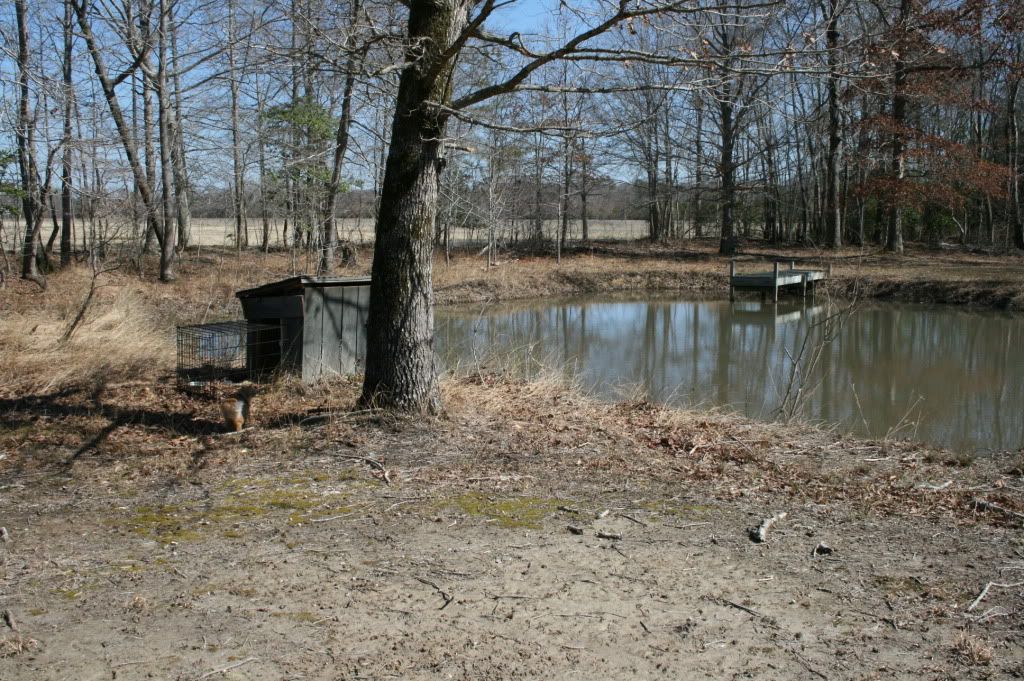Shiloh Acres
Lovin' The Homestead
- Joined
- Jun 29, 2010
- Messages
- 970
- Reaction score
- 0
- Points
- 84
Waterowl tend to prefer being outside ... The main reason most of them get cooped is to protect them from predators. They will appreciate water. 
lorihadams said:We built a house out of an old crate. Just give them somewhere to go at night that you can lock up to keep them from getting eaten! Pics please!
 ok I'll post some pics...and some pics of their set-up right now....it pitiful.
ok I'll post some pics...and some pics of their set-up right now....it pitiful.Get a few more girls?I also got a pair of Muscovies. They are still young but fully feathered and should be a pair. He gave them to me for FREEEEEE!
Like chickens I should have 4-5 girls to one boy?Wifezilla said:Get a few more girls?I also got a pair of Muscovies. They are still young but fully feathered and should be a pair. He gave them to me for FREEEEEE!
Thank you, thank you for all this info! I needed it. I am hoping they will like to hang out on the little pier/dock we have at the pond....it's kinda like a porch.lwheelr said:A doghouse is actually just fine. When they are old enough to nest, you'll want something better, with nest boxes.
They free range just great, but...
Federal law now requires that you clip their flight feathers. We do that anyway, because we could not have them flying around the neighborhood. They do just fine, they flap all around the yard, climb and jump up onto things that are a few feet off the ground, and still can glide to jump down.
They'll poop on your porch anyway. They like porches. I think they like them better than any other location, probably because they know you don't want them to poop there...
Muscovies waddle - they are slow. They don't cover great amounts of distance each day like faster ducks do. They are amazing bug eaters. They train really well - if you want them to free range in the daytime and come in for night, they'll train for that. You just scatter a little scratch grain out in the morning to get them out the first few days, and then feed them a bit of feed at night in the pen. By the third day, they'll be waiting for you to feed them in the pen at night. You won't need to feed them much scratch or feed - for the most part, if you have weeds and bugs, they'll get 80% of their needs from that in the growing season. It is good to keep a little feed coming their way though, to keep them routined so that you can gather them up when you need to.
They also herd well. Just go slowly so you don't cause them to break and run. Move slow, and use a staff to extend the length of your arm to encourage them as needed - you never even have to touch them, you just hold it out as a barrier. They don't like going into confined areas where they can't see what is on the other side - they are cautious. So they may try to break when you try to run them through a bottleneck where they can't see well where they are going. Nice thing is that if they DO break, they are slow enough that even running, you can generally catch them.
We have a doghouse that we put out - it is one of the two-piece plastic ones. We kept the pieces apart, just put both down so each forms an igloo. The ducks go in at night, the drakes stand guard. We'll do something better when we get settled.
If you have a pair, they should breed once they are mature (8-10 months). You'll get anywhere between 2 and 4 clutches a year, depending on the climate. They will hatch anywhere from 10 to 20 eggs per clutch - you'll lose a few if they freerange, maybe a lot. But you should still end up with a good flock by fall, with ducks ready to butcher all winter long. Young ones will dress out at about three pounds, older ones will dress out at 4-6 pounds. The meat is awesome, it is a good red meat that is easily digestible (more so than beef or goat, for people who have digestive problems).
They are the best decision we've ever made, and for small animal raisers who need a source of red meat, they are the top choice.


